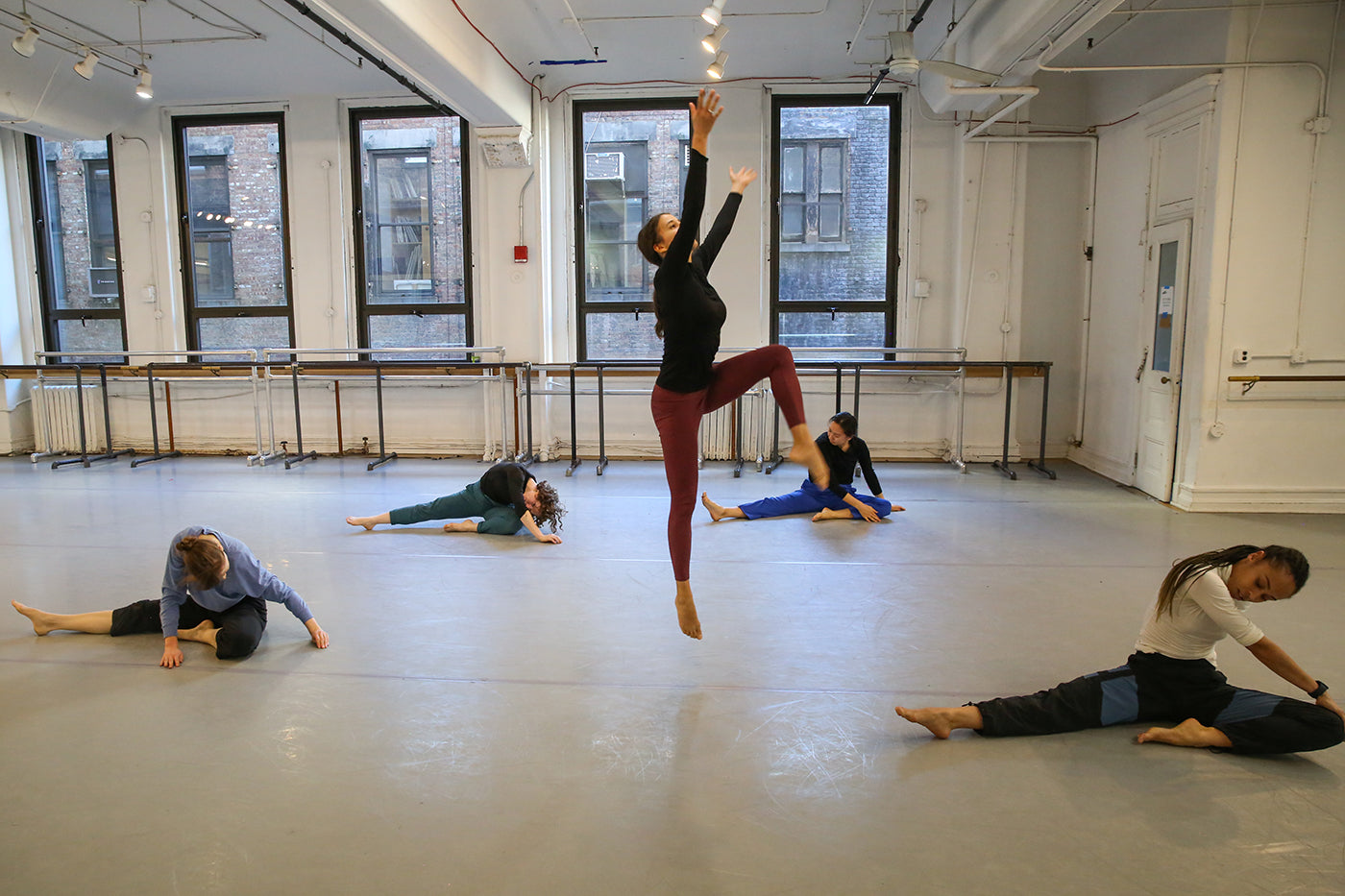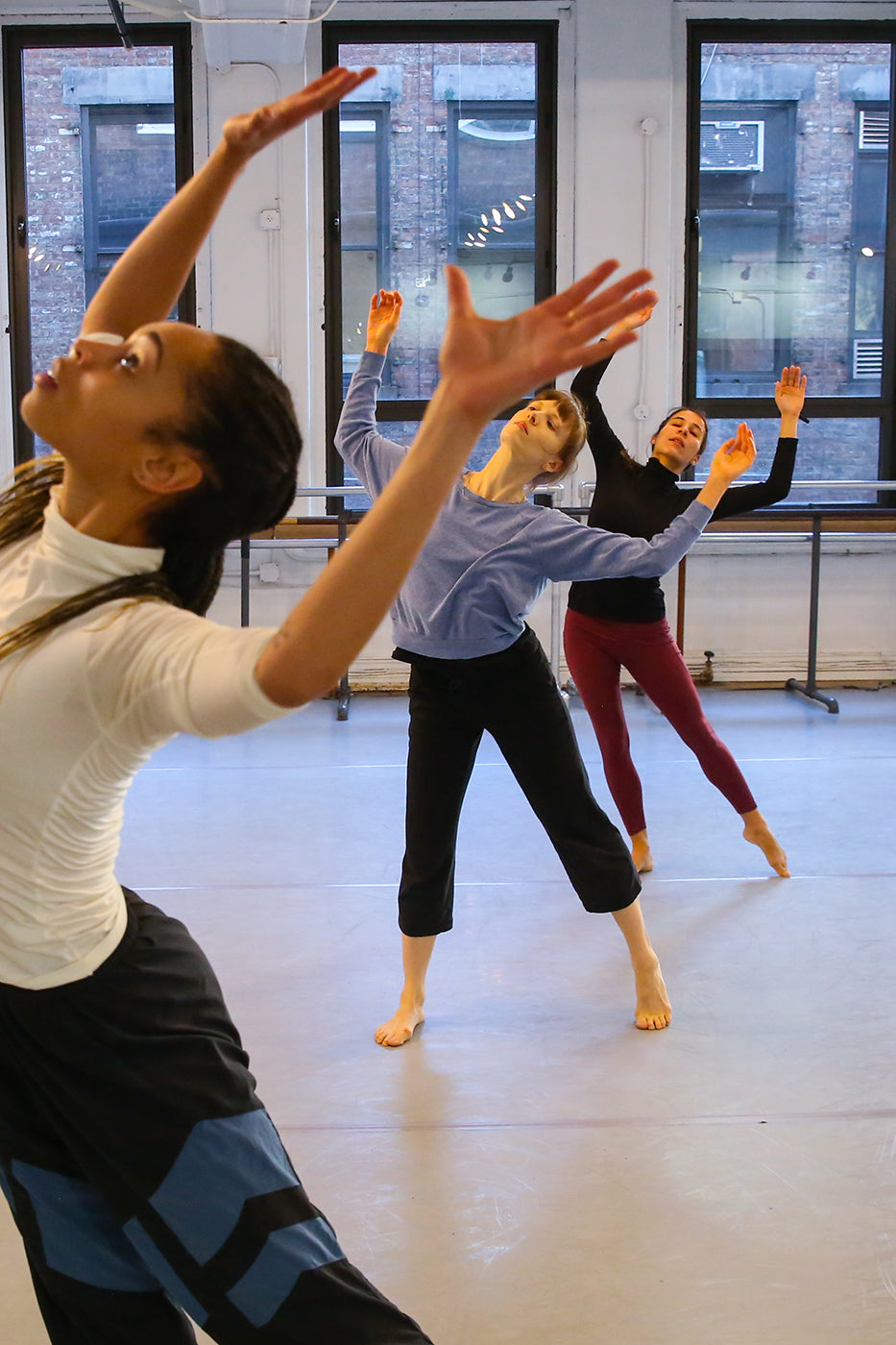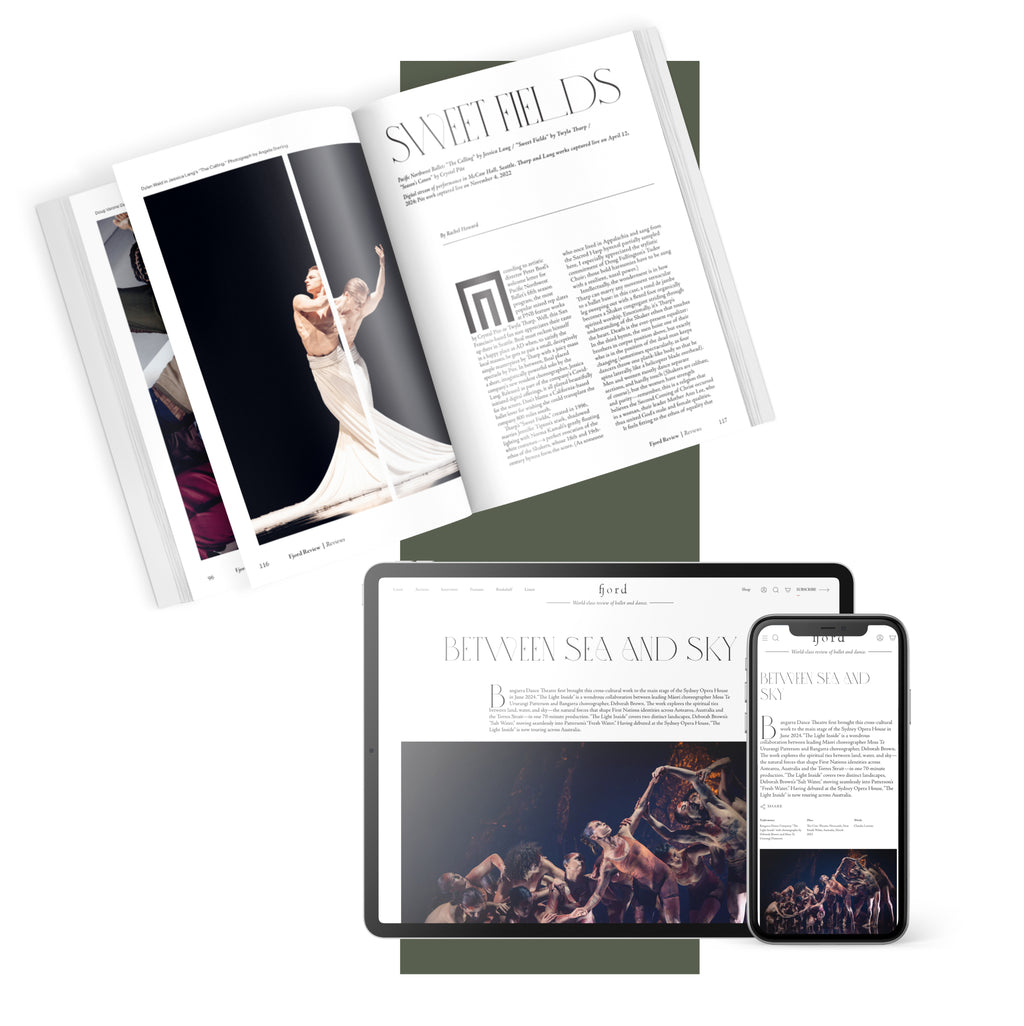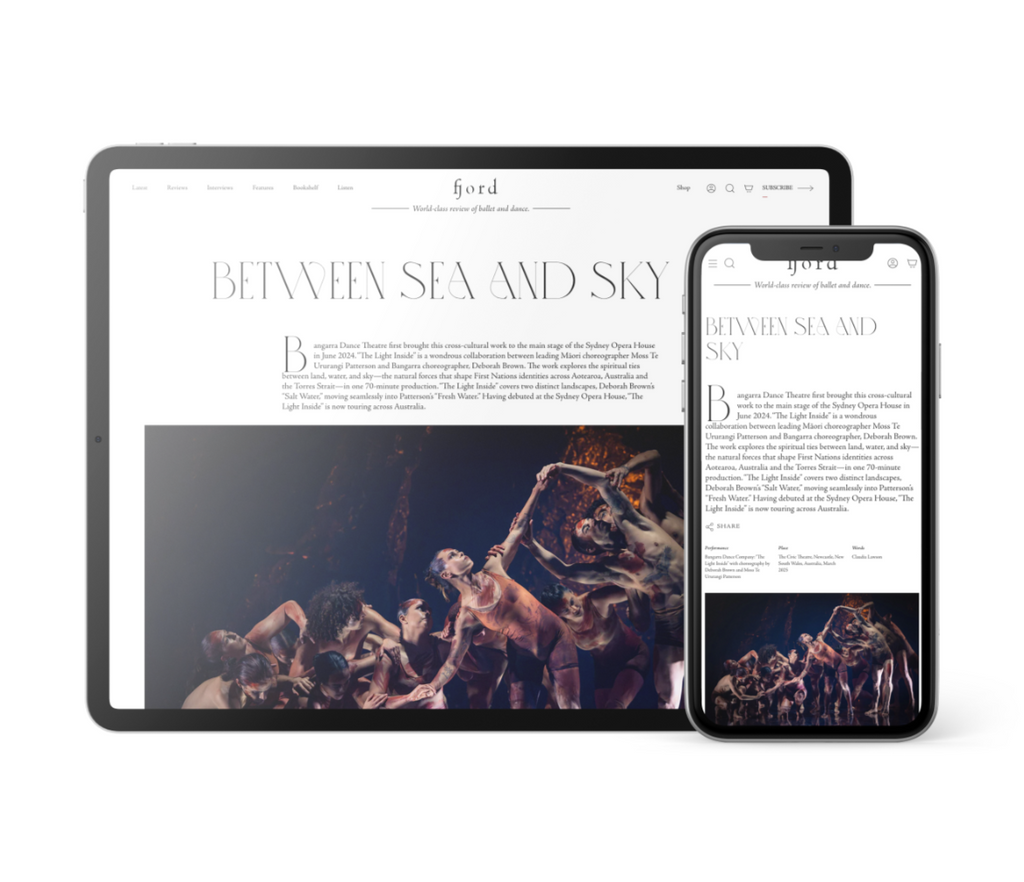Moving Stories
The first moments of Risa show the petite Risa Steinberg seated at a sleek desktop in her New York apartment.
Continue Reading
World-class review of ballet and dance.
Six dancers enter from stage left and position themselves along the rear wall, their backs to the audience. Today, the light through a row of windows casts them in silhouette. They look like filigreed latticework as they stand, some in first position, some with one foot arched, heel resting against the opposing ankle. After a beat, they casually step into a wider stance: easy knees, softness in the torso, maybe an arm to the hip. Stationary for a moment, then they disperse. Today is the first time they have access to the theater—the James and Martha Duffy Performance Space at the Mark Morris Dance Center in Brooklyn. The premiere of “Smile, though your heart is aching,” choreographed and directed by Megan Williams, is a mere three weeks out.




“Uncommonly intelligent, substantial coverage.”
Your weekly source for world-class dance reviews, interviews, articles, and more.
Already a paid subscriber? Login
The first moments of Risa show the petite Risa Steinberg seated at a sleek desktop in her New York apartment.
Continue ReadingThe ballet community in Los Angeles, quite large and scattered, is fond of opining that they live in a “tough town for ballet.”
Continue ReadingDance artists and scholars have long asked the same question: how do we document an art form that, by nature, exists in one moment and is gone the next?
Continue ReadingIn a week of humanitarian crisis, of bodies mobilised and menaced, what a privilege it’s been to take refuge in art that radiates integrity, conviction and splendour.
Continue Reading
comments